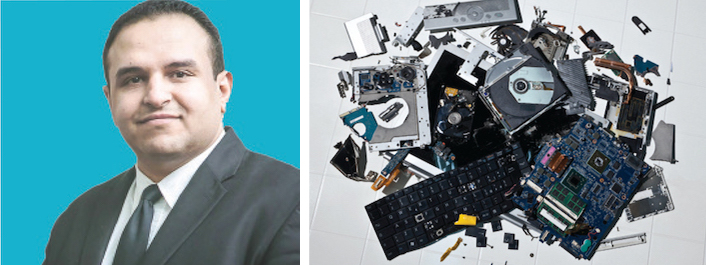4 Ways to Champion Women’s Health at Work

Make these adjustments to provide more inclusive support.
The United Kingdom Parliament rejected a proposed law change in January that would have helped protect the rights of menopausal employees. This was due to fears of discrimination against men in the workplace — bringing women’s health to the forefront of the workplace wellbeing discussion.
Approximately 1.3 million people enter menopause each year in the U.S., and the cost of menopause-related productivity losses is estimated at $150 billion a year — so why are employers not doing more to support women going through menopause symptoms at work?
Despite ongoing research and media conversation about the impact of menopause on mental health, workplace wellbeing policy in the U.S. is still largely failing to provide appropriate support. Real leaders must challenge their previous ideas regarding health in the workplace and rethink their wellbeing frameworks to provide more inclusive support for conditions that affect half the workforce. So, what do leaders need to change?
1. Challenge preconceptions of health and illness.
Traditionally, leaders universalize one perspective on wellbeing in the workplace, which fails to address conditions that affect specific groups.
The lack of diversity in the C-suite is a key factor in a lack of knowledge and understanding of women’s health in the workplace. With a lack of female voices at the top, misconceptions about women’s health and the impact of menopause continue to pervade our wellbeing policies.
To challenge this, leaders must educate themselves and broaden their understanding of wellbeing beyond their own lived experience. Challenging our personal biases and misconceptions is foundational to creating an inclusive and comprehensive wellbeing policy.
By expanding reasons for justified sickness absence beyond what seems familiar, we can rebuild wellbeing frameworks to maximize employee wellbeing and boost performance.
2. Educate the workforce.
As well as misconceptions and lack of education at the top, many people in the workforce do not understand menopause and its impact on those experiencing it. Leadership teams must educate the workforce on the array of symptoms that menopause can bring beyond hot flashes and mood swings. Insomnia, muscle aches, brain fog, migraines, and heart palpitations are all common symptoms, as well as anxiety and low mood.
Educating the workforce on the broad range of health effects caused or amplified by menopause will help reduce any stigma or judgment around absence or flexibility given to those suffering. It will also help increase empathy and communication between peers.
Additionally, spreading awareness will help other employees identify if someone is struggling and will help them respond supportively. If a colleague is behaving differently their peers will have a better chance of responding more appropriately.
3. Encourage supportive communities.
In a survey by The Chartered Institute of Personnel and Development, nearly a third of women surveyed (30%) said they had taken sick leave because of menopause symptoms, but only a quarter of them felt able to tell their manager the real reason for their absence. Privacy (45%) was the main consideration for women choosing not to disclose; however, 34% said embarrassment prevented them from saying why they had to take time off, and another 32% cited an unsupportive manager.
When women feel embarrassed or guilty for feeling unwell as a result of a health condition that is poorly understood or dismissed as legitimate, their general wellbeing, engagement, and performance is negatively affected. Leaders must listen actively and with empathy to avoid communicating the judgment that many women fear. Leaders must set the precedence that women’s health is taken seriously and that women will be protected by a wellbeing policy.
Committing to the education of leaders and the wider workforce helps build the foundation for women to feel psychologically safe at work — confident that their needs are supported and understood. This creates an environment where women feel more comfortable sharing their experiences and being honest with management and colleagues if they are struggling or need extra support.
4. Signpost accessible support.
Although educating yourself as a leader on these topics is important, it is OK to feel unsure about how to advise and support women who are struggling. Leaders are used to the idea that they have all the answers in a professional capacity, but this does not extend to knowing how to help employees through every health struggle. The responsibility of a leader is to make employees feel heard and seen and to provide more appropriate support from wellbeing experts such as counselors, psychologists, or medical professionals.
However, it is not enough to simply have the support available to employees. First, it must be advertised and signposted so that everyone knows how to access it. Second, it mustn’t be veiled in layers of bureaucracy. Often, those who are struggling need help quickly; those who are apprehensive will be deterred if there are too many hoops to jump through.
Leaders have a responsibility to introduce new policies and educate their workforce to create a culture of support to help women navigate the challenges of menopause. Broadening reasons for sick leave and absences is also vital to ensure women feel supported and taken seriously.
Lesley Cooper is the founder of WorkingWell and a management consultant in the design and delivery of employee wellbeing management programs.
Subscribe today and gain a strategic advantage from the emerging trends and best leadership practices found within Real Leaders magazine.





Responses